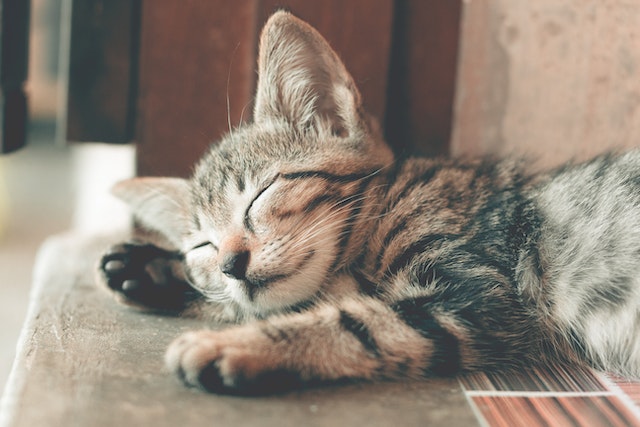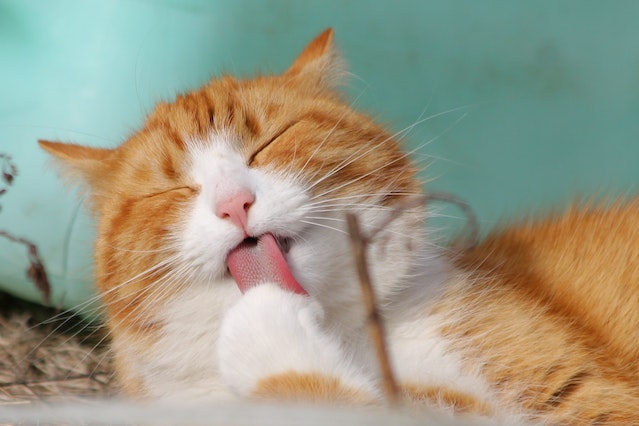
As responsible cat owners, we prioritize the safety and well-being of our beloved furry friends. However, it’s essential to be aware of unseen dangers that can harm our cats, even in the comfort of our homes.
Spiders can often pose risks to our feline companions, so it’s vital to understand the signs and know how to treat spider bites on cats.
Whether you’re an experienced cat owner or a new pet parent, the experts at Innovative Pest Solutions are here to help with effective strategies that will help you recognize spider bites and eliminate them from your Raleigh home.
Did a Spider Bite Your Cat?
Identifying spider bites on cats can be quite challenging since the signs and symptoms can vary depending on the spider species and the individual cat’s reaction to the bite. However, there are a few indicators that might suggest a spider bite has occurred:
Visible Bite Mark: In some cases, you may notice a visible bite mark on your cat. This could appear as a small, red bump or welt on the skin.
Swelling and Redness: Spider bites can cause localized swelling and redness around the area of the bite. The severity of these symptoms can vary depending on the cat’s reaction and the type of spider involved. Look for any unusual swelling or redness on your cat’s skin.
Pain or Discomfort: Cats may exhibit signs of pain, tenderness, or discomfort at the bite site. They may repeatedly lick, scratch, or bite at the affected area. If you observe your cat engaging in such behavior, it could indicate a spider bite.
Skin Changes: Spider bites can sometimes lead to skin changes beyond swelling and redness. In more severe cases, you might notice blistering, ulceration, or necrosis (tissue death) around the bite area. These more severe skin changes are rare but can occur with certain spider bites.
Systemic Symptoms: While uncommon, some spider bites can cause systemic symptoms in cats. If you notice your cat displaying signs such as fever, lethargy, loss of appetite, vomiting, or diarrhea, it’s important to seek veterinary attention immediately, as these symptoms may indicate a more serious reaction to the spider bite.
Many cases of spider bites on cats go unnoticed or can be mistaken for other conditions. If you suspect a spider has bitten your cat or if you observe any concerning symptoms, it’s always best to consult a veterinarian. They can examine your cat, assess the situation, and provide appropriate treatment or recommendations based on their professional expertise.
Consider implementing preventive measures to help reduce the risk of spider bites on your cat. Keep your home clean and free of spider webs, particularly in areas accessible to your cat. Regularly inspect and clean outdoor spaces where your cat spends time, such as gardens or patio areas. If you live in an area known for venomous spiders, consider using cat-safe insecticides or seek professional pest control services to minimize the presence of spiders in your environment.
Remember, every cat and every spider bite case is unique, so professional veterinary advice should always be sought for specific concerns about your cat’s health.
Treating Spider Bites on Cats
If you suspect a spider has bitten your cat, carefully observe the bite area and assess your cat’s overall condition. Look for any signs of swelling, redness, or discomfort. Note any changes in behavior or unusual symptoms your cat may be experiencing.
But don’t neglect to call your vet. It’s crucial to reach out to your veterinarian as soon as possible. Explain the situation and provide details about the suspected spider bite. Your veterinarian will guide you on the next steps, which may include scheduling an examination or offering initial at-home care advice.
You can clean the bite area with a mild antiseptic solution or sterile saline if the veterinarian recommends it. Gently remove debris or discharge around the wound using a clean cloth or cotton pad. This can help prevent infection until your cat receives professional veterinary care.
If you see noticeable swelling or your cat seems uncomfortable, apply a cold compress to the bite area. Wrap a clean cloth or ice pack in a towel and gently place it on the swollen area for a few minutes at a time. This can help reduce swelling and provide some relief.
Cats may try to scratch or lick the affected area, worsening the situation. To prevent further irritation, consider using a soft, protective Elizabethan collar (commonly known as a “cone”) to prevent your cat from accessing the bite site until you can consult your veterinarian.

Keep a close eye on your cat’s behavior, appetite, and overall condition. Take note of any changes or worsening symptoms. If you observe any concerning developments or if your cat’s condition deteriorates, contact your veterinarian immediately.
Remember, while these steps can provide temporary relief and help manage the situation until you can get professional veterinary care, they are not a substitute for veterinary treatment.
Spider bites on cats can vary in severity, and some can be venomous, leading to serious health complications. Seeking the expertise of a veterinarian is crucial to ensure proper diagnosis, treatment, and care tailored to your cat’s specific needs.
By promptly contacting your veterinarian and following their guidance, you can provide immediate care to your cat while ensuring they receive professional attention to address the spider bite effectively.
Note: This advice is provided for informational purposes only and is not a substitute for professional veterinary guidance. Always consult a veterinarian for specific recommendations and treatment options for your cat’s health concerns.
Innovative’s Spider Control Services
At Innovative Pest Solutions, we understand the importance of keeping your North Carolina home and your furry friends safe from spiders. While we’re happy to provide information about spider bites on cats, focusing on preventative measures will ensure the safety of yourself and your family. Our team of experts is dedicated to providing cutting-edge solutions that effectively protect against spider infestations.
Trust Innovative Pest Solutions to deliver effective results and the peace of mind you deserve. Let us be your partner in safeguarding your home against spiders, so you can enjoy a spider-free environment while ensuring the well-being of your cherished cats.
Contact us today to learn more about our Raleigh, North Carolina, pest solutions and how we can protect your home and furry friends from spiders.





